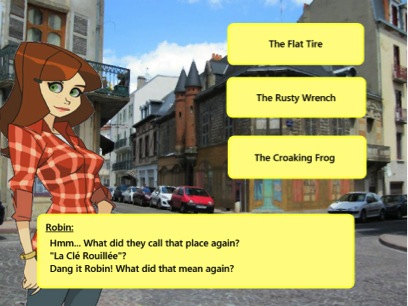
As technology continues to advance, so too does the way we interact with information and with one another. From how people date to how they learn in the classroom to how they search for jobs, technology has changed our lives, our minds and our brains.
Given the chance to design her “dream course,” psychology professor Michelle Miller focused on technology’s impacts and how it could be leveraged to improve the mind.
As a 2011 Distinguished Teaching Fellow, Miller was provided the opportunity to teach the course, Mind, Brain and Technology: Using Psychology to Thrive in a Wired World, this spring. For Miller, her dream involved a return to her research roots and a chance for content innovation.
“As an introductory level psychology instructor, there is not a lot of wiggle room in teaching,” Miller explained. “This senior seminar combines scholarly research with pop culture reviews to cover a variety of topics and to help prepare students for the real world, regardless of where their future careers take them.”
Miller’s emphasis on career skills is deeply woven into the course structure. In lieu of the traditional in-class midterm and final, students complete online assessments throughout the semester to strengthen self-management skills. The course is also built around working groups to facilitate student-led discussion and stress the habits expected in professional and graduate settings.
The unique aspect of the class is the capstone project in which each student proposes and designs a mobile application that uses psychology research to promote general well being or everyday functioning.
“There are a ton of mobile apps out there, but not many grounded in research,” Miller said. “The app project is an exercise that allows students to use their psychology knowledge to visualize and create a tangible product.”
Over the course of the semester and with input from peers, students developed their ideas, designed mock-up apps, and finally made a formal presentation. The projects were as diverse as the class itself that mixed heavy-tech users with tech skeptics.
Student apps included educational video games, on-demand help for psychological problems, healthy eating, and guided meditation and exercises.
Miller, who is transitioning full-time to the University College where she is co-director of the First Year Learning Initiative, hopes the course will continue as a modified freshman seminar.
“The high level of engagement with my seniors was especially rewarding. I am enormously grateful to the Fellowship program and the Department of Psychology for supporting my efforts. It has truly been the singular experience of my teaching career.”



